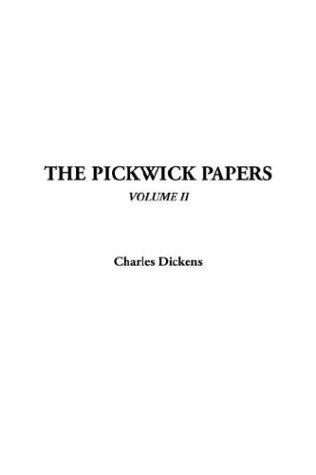Orlion reviewed The Pickwick Papers by Charles Dickens
Review of 'The Pickwick Papers' on 'Goodreads'
4 stars
So, this was Charles Dickens' first novel and his first novel that I have read (I consider A Christmas Carol to be more of a novella). So, how does it hold up?
There is a claim that a good portion of English culture arises from the works of Charles Dickens. The question then becomes: is it works or just the Pickwick Papers? There are plenty of goings on that would be recognizable as now being part of the broader culture... or at least use to be. Of course, Dickens also borrowed a lot from his own culture and from works of literature previous to his own.
In particular, there is a lot of influence seen from Cervante's Don Quixote. The silliness of the main premises and of the characters combined with the relationship between Mr. Pickwick and Samuel Weller mirroring that of Don Quixote and Sancho Pancho make this very clear. However, whereas Cervantes started out to critique the knight literature of his time, from the outset, Dickens is concerned with satirizing and critiquing late Georgian/Pre-Victorian English society. He does this with Pickwick's interactions with the law and debtors' prison but also through some of the stories they hear along the way.
Most of the stories themselves go against the lighthearted feel of the rest of the novel. In fact, it's a bit jarring to go from the bright, idealist viewpoint of Pickwick to the dreary, hopeless atmosphere of the tale about a dying clown. This showcases Dickens' range of writing, but also allows him to drive some serious points about his society without changing the mood of the main story. In fact, some of the best writing in this novel is in some of these stories, the one about the Sexton and the Goblin particularly stands out as memorable and powerful.
It is not a perfect novel. A lot of the characters are mostly ignored throughout the novel (in particular two of Pickwick's traveling companions, Mr. Tupman and Mr. Snodgrass). This happens once Samuel Weller appears on scene and he and Pickwick pretty much steal the show with Mr. Winkle managing to get some attention towards the end.
All in all, it is a very good freshman effort on Dickens' part. It is of such a quality that one would have to think he had written plenty of other stories before. It continues to still be an entertaining and relevant read even today, a testament to its brilliance and the stagnation of society's moral improvement.

